After infighting between New Gingrich and fellow republicans, the panel examines the current field of GOP candidates. Also, the table reports on campaign fundraising efforts, the scandal rocking the IMF, and the President's clash with Israel's PM on the path to peace in the Mideast. Joining Gwen: Jeanne Cummings/POLITICO, Michael Duffy/TIME, Doyle McManus/Los Angeles Times, Eamon Javers/CNBC.
Full Episode: May 20, 2011
Nov. 03, 2014 AT 5:04 p.m. EST
TRANSCRIPT
Notice: Transcripts are machine and human generated and lightly edited for accuracy. They may contain errors.
MS. IFILL:
Campaigns, money, and scandal, three of the four ingredients needed for a remarkable round table, tonight on “Washington Week.”
The 2012 campaign gets off to a stuttering, stumbling start.
NEWT GINGRICH:
I don’t think right wing social engineering is any more desirable than left wing social engineering.
MS. IFILL:
With leading presidential hopefuls on the defensive, the newest GOP candidate spent more time apologizing than campaigning, while another chose to defend rather than apologize, in this case because of his work for a president he now seeks to defeat.
JON HUNTSMAN:
I worked for the president of the United States and during a time of war, during a time of economic difficulty for our country. If I’m asked by my president to serve, I’ll stand up and do it.
MS. IFILL:
Meanwhile, Democrats aim their outside big money at the early frontrunners.
AD ANNOUNCER:
With Mitt Romney, you have to wonder which page is he on today?
MS. IFILL:
But Romney has raised $10 million in a single day.
On the foreign policy front, the president’s Middle East speech revives the Israeli-Palestinian dispute.
PRIME MINISTER BENJAMIN NETANYAHU:
The only peace that will endure is one that is based on reality, on unshakeable facts.
MS. IFILL:
And a sex assault charge shines an unflattering spotlight on the now ex-chief of the International Monetary Fund. Covering the week: Michael Duffy of “Time” Magazine, Jeanne Cummings of Politico, Doyle McManus of the “Los Angeles Times,” and Eamon Javers of CNBC.
ANNOUNCER:
Award-winning reporting and analysis, covering history as it happens, live from our nation’s capital, this is “Washington Week” with Gwen Ifill produced in association with “National Journal.”
(Station announcements.)
ANNOUNCER:
Once again, live from Washington, moderator Gwen Ifill.
MS. IFILL:
Good evening. If you’re one of those folks who’ve been just waiting for the 2012 presidential campaign to begin in earnest, have we got news for you. Just this week, millions of dollars were raised; candidates invaded living rooms in New Hampshire and Iowa. And we got a classic campaign gaffe, courtesy of former House Speaker Newt Gingrich. On Sunday, he compared House Budget Chairman Paul Ryan’s Medicare plan to right-wing social engineering.
MR. GINGRICH:
I don’t think imposing radical change from the right or the left is a very good way for a free society to operate. I think we need a national conversation to get to a better Medicare system with more choices for seniors.
MS. IFILL:
I can’t tell you how badly this went over with Gingrich’s fellow conservatives, and he spent a fair portion of the week first casting blame, then apologizing. But that was just the beginning of what turned into an eventful political week. What did Gingrich mean when he said this right-wing social engineering thing, Michael, and does it matter what he meant?
MR. DUFFY:
What it means is very complicated, what it matters, relatively simple. It means that the fights that have been going on inside the Republican Party all spring about entitlements and debt and deficits and how to fix them have now spilled into the presidential campaign. It also means that the Obama White House is not going to let an opportunity like this go unseized. When Gingrich said what he said about Ryan’s plan, he called it a too big a jump, really, too radical, he really poured fuel on a fight that’s been simmering for weeks about whether the whole Ryan budget cutting plan, not just the Medicare part that Newt was talking about, but the whole thing in the view of more and more Republicans each week it seems like might just be an invitation to electoral disaster.
This goes against what many of the most orthodox Tea Party, the activists in the Republican Party have begun to view the Ryan plan as a kind of a gospel of Ryan, a text that is sacred almost. So there’s this split that’s been developing and then Newt jumped right into the middle of it. And he of course, as you said, walked it back. But the funny things about Newt was that he said twice before, even in the last week, that he actually supported the Ryan plan, which so – this raises –
MS. IFILL:
So he’s trying to have it both ways, so why did he run into such a buzz saw if indeed there are so many Republicans who secretly believe that he’s not far off base.
MR. DUFFY:
– right. Because among the most active – activist Republicans in the presidential primary process and particularly among the Tea Party group that has sent so many to Congress to shrink the size of government in the last year, this is an untouchable idea. It’s something that has to be pushed through. And the more distance you put between that, when you’re a presidential candidate, the more dangerous it poses.
MR. JAVERS:
Michael –
MS. IFILL:
Let me just ask Jeanne a question first, then we’ll come back to – because I’m also curious that it wasn’t just Gingrich who was making news this week, who was changing the fabric of this whole campaign is what was happening with the Republicans and the Democrats in raising money, including on this issue, hand over fist.
MS. CUMMINGS:
Absolutely, the – at least the money part has finally been launched. And Mitt Romney did it with an even down in Vegas where he brought in all of his very wealthy donors, and brought them in with their rolodexes, so they could call their friends and bring money in.
He did – and he did this two years ago at the beginning of the presidential campaign. This is how he opened his campaign in the last cycle. And in that case, he was in Boston. He raised about $5 million. Well he doubled it this year. In Vegas, in one day, they got commitments and pledges for $10 million. This is probably more than most of these other Republican candidates are going to raise in the quarter. And so it sent a very strong signal, not just to his opponents about his strength, but any fence sitters, all those – this is a shot across the bow to Mitch Daniels. It’s basically bring it on. So that was a really important event for the Romney campaign.
And then tying together with the Gingrich problems, one of the first things we started to hear was that he had an event that was scheduled down South that started to collapse because there were people who were signed up to sponsor a fundraiser for him, but in light of what he’d said about the Republican plan, some of them were going to walk away. His campaign says he made the calls. He brought them all back.
MS. IFILL:
And he’s still getting big crowds in Iowa.
MS. CUMMINGS:
Well, big crowds aren’t money. Big crowds are a good thing, and there’re a lot of people in those crowds that want to confront him, and there are people in those crowds that just want to be there to look at the guy who’s in so much trouble and who everyone – many elite Republicans now say is dead man walking.
MR. DUFFY:
In fact, there was an unforgettable tape this week at one of Gingrich’s first events on Monday, where one of the people who wanted to confront him came up and said, “why don’t you get out before you make an even bigger fool of yourself,” which is an issue for Gingrich as he has run. This is almost his third time. And each time it’s a short-lived effort, usually because he opens his mouth and says something and he can’t actually take back. And he’s done it again in record time this round.
MR. JAVERS:
That brings me to the question I’ve had about this campaign since the get-go, I covered Newt Gingrich when he was speaker of the House and he had such an operatic tenure as speaker of the House. What was it that Newt saw here as his opportunity? I mean, why did he think he might be the guy who could win the GOP nomination this year?
MR. DUFFY:
Well, against this field, almost anyone could see an opportunity. It’s a very weak field. As Jeanne said, there’s not a lot of money in the system yet. Romney, for all his advantages, being ahead in that race, has other handicaps. And Gingrich has always wanted to do this. And you can see that even in the way he talks. The greatest irony for me is the one you kind of hinted at, which is that here we had this week Newt Gingrich, who 15 years ago was the rebel, was the Paul Ryan, was the one who was too radical for Bob Dole –
MS. IFILL:
Yes, that struck me, too.
MR. DUFFY:
– when he was running, in 1996. And he had to put some distance between it. Now, goes out, runs again, after a fair amount of time out of politics, and finds himself not really understanding how much the landscape has changed.
MR. MCMANUS:
Now, it looks as if the Tea Party and the Republican faithful are still looking for their champion. Newt Gingrich kind of proved that he’s not it. Mitt Romney isn’t quite it yet. Did any candidate jump in, denounce Newt Gingrich, and take up that banner, or are Tea Party still waiting for Sarah Palin and Michele Bachmann?
MS. CUMMINGS:
Yes – well, Michele Bachmann is the one candidate that saw that opening as perhaps her best opportunity. And she had planned to make an announcement in June. And she, this week, told her supporters she may move up her announcement. I think –
MS. IFILL:
And made a whole lot of robocalls into Iowa, yesterday, after the president’s Middle East speech.
MS. CUMMINGS:
And she can raise a lot of money. And that’s the other thing. The candidates who are sitting on the outside, who have not made up their minds about whether they’re getting in or not, the only ones who are really going to have a shot to get in here are those that can raise money fast. And that window is closing even for them. But Bachmann is definitely one of them because she definitely is a grassroots, online kind of candidate who can turn over donations quickly.
MR. DUFFY:
I was going to say, one of the – a lot of people think Mitch Daniels might get in here in the next couple of weeks because of the reason you cite, because they think he can raise some money. Can he raise enough fast enough to keep up with Romney?
MS. CUMMINGS:
They – you hear that. There’s no evidence of it. I mean, he’s run for governor. He did very well in Indiana. But this is a presidential campaign and the scale is dramatically better. I think if Mitch Daniels gets in, though, that in all likelihood, if not openly, privately, Mississippi Governor Haley Barbour, his dear friend, with the giant rolodex jumps in and tries to use that machine to help him.
MS. IFILL:
Bush is calling him and urging him to get in. So you assume there’s some establishment support out there waiting to find someone. But what about the anti-establishment support. Last week, when we were sitting here, Mike Huckabee dropped out of the race, if he was ever really in it. And so that means that people who were sitting back on the sidelines and trying to decide what to do next have to scatter and go somewhere. Where do they go?
MR. DUFFY:
One of the things I think Doyle was hinting at was that there’re a number of key constituencies in this party that still have yet to find a good horse. Social conservatives clearly don’t have one, although I suppose Michele Bachmann could come up. The Tea Partiers, the group I was talking about a minute ago, not an obvious – other than Ron Paul, who may or may not be a viable long-term candidate, don’t have a clear –
MS. IFILL:
Tim Pawlenty?
MR. DUFFY:
Well, you know, Pawlenty gets in this week and –
MS. CUMMINGS:
He’s trying. I mean he’s been meeting with them. And if you look at the field, as Michael has said, all of them have really strong problems with their candidacies, but Pawlenty is a little bit different because he’s got growth room. And Romney can’t become something he wasn’t in 2008 or risks becoming more of a flip-flopper. And we’ve discussed Gingrich’s problems and it goes on and on. But Pawlenty was a pretty good governor, Midwestern governor. He doesn’t have a whole lot of negative stuff attached to him. He did advocate for a cap and trade system, something he immediately came out and said, “Sorry, mistake, didn’t mean to do it,” trying to get that off the plate.
He’s got growing room and he has been meeting with the tea partiers, he announced his team in Iowa this week. It’s a very good team. And heading it up is Mike Huckabee’s chairman, who he had in Iowa. And Huckabee won Iowa, and that’s tea party central up there.
MS. IFILL:
It should be said that the president’s not – or his people are not just sitting on their hands and watching this all play out. So what – he’s been out raising money as well. What is happening on the Democratic side?
MS. CUMMINGS:
The Democrats did very well in April in large part because the president got off the couch. He went on at the end of March for – to start raising money and they report in April that they raised 12 – just about $12.5 million, double what the RNC did. These were all joint events so if you see that kind of leap in money for the DNC; it is a hint of the kind of money he’s starting to bank in his presidential campaign account.
MR. JAVERS:
And he’s presumably not going to have a primary opponent, so he’s not going to need to spend that cash.
MS. IFILL:
Except that he’s certainly worried about – they must be watching one of these Republicans wondering who they’re going to go up against.
MR. DUFFY:
They are. They’re watching them all very closely, and I think just from the number of leaks their making about him, I think Jon Huntsman is the one they’re worried about the most, who had his first foray into New Hampshire this week as well. My favorite detail, though, the whole Gingrich-Paul Ryan kerfuffle was not even two days had gone by before a White House aide stood up and said, well, this just proves that destroying Medicare is the new litmus test for the Republican Party primary. So they see an opportunity here to just drive that whole debate further and further to the right, toward the tea party, away from the center. And that’s why they were happy about what happened.
MS. CUMMINGS:
And we saw the first ad come up – come out this week from one of the super-PACs and it was the Democrats who moved first, not Karl Rove and his group.
MS. IFILL:
Let’s explain what you mean by “super-PACs.” We’re talking about these independent expenditure groups who do not have the limitation of the campaign finance laws, which the Republicans are dominated – Karl Rove and those folks in past times, not the Democrats who are getting in on the game.
MS. CUMMINGS:
Yes and they unveiled their first ad and it was an attack on Romney. So – and they’re not working with the White House. They can’t coordinate with the White House, but it’s an indication, at least, of where – that he too was a candidate that the Democrats –
MR. DUFFY:
In 2012, independent expenditure group means that you are completely tied to the group you’re not supposed to be tied to. (Laughter.)
MS. CUMMINGS:
– friends.
MR. JAVERS:
The guy who’s running that independent expenditure group had an office in the White House six weeks ago.
MS. CUMMINGS:
Bill Burton, the spokesman for the White House.
MS. IFILL:
Exactly.
MR. DUFFY:
That’s what independent means.
MR. MCMANUS:
Okay, so if Republicans have a long, bloody, and expensive internecine nomination fight, is that good news or bad news for Barack Obama?
MS. IFILL:
Quick answer.
MR. DUFFY:
It’s good news.
MS. IFILL:
Oh, really quick answer. Okay, thank you. (Laughter.)
The White House sought to focus its firepower on another target this week, sending a message to the Middle East and to the Arab world.
PRESIDENT BARACK OBAMA:
For decades, the United States has pursued a set of core interests in the region: countering terrorism and stopping the spread of nuclear weapons, securing the free flow of commerce and safeguarding the security of the region, standing up for Israel’s security, and pursuing Arab-Israeli peace.
MS. IFILL:
Yes, yes, yes, the president talked about Syria and Bahrain and Egypt and Tunisia, but all of the reaction was about whether Arab-Israeli peace talks should start with the 1967 borders.
PRIME MIN. NETANYAHU:
I think for there to be peace, the Palestinians will have to accept some basic realities. The first is that while Israel is prepared to make generous compromises for peace, it cannot go back to the 1967 lines because these lines are indefensible, because they don’t take into account certain changes that have taken place on the ground.
MS. IFILL:
So much of the agreement and the disagreement seems to be about language, body language and others, and also just about signal sending, Doyle.
MR. MCMANUS:
Yes, signal sending absolutely and signal sending in the arcane language of Arab-Israeli diplomacy. These are really smoke signals and you have to know the language to know what’s going on here. Okay. First, the 1967 borders. The 1967 borders, the borders between Israel and the West Bank and Israel and Gaza have been the basis –
MS. IFILL:
Or the armistice lines, as some –
MR. MCMANUS:
– armistice lines of 1949, if you want a different – a different date to work off – have been the basis of negotiations since at least the Clinton administration. Everybody involved in this knows that. President Obama wasn’t saying Israel has to go back to those borders. He said you start with those borders and you make adjustments to them. Okay. That’s actually been de facto U.S. policy. But no president had explicitly said it before as U.S. policy as the starting point that was sort of written in gold, and Netanyahu didn’t liked that because he wanted to hang on to that as kind of a bargaining chip, even though it’s a bargaining chip that he’s given away, that his predecessors have given away, he wanted the right to take it back. So he wasn’t happy about that phrase.
On the other side, Obama had to sit there and listen to not one but several lectures about basic realities on the ground. You heard Prime Minister Netanyahu say that. Well, realities on the ground is code language for the Israeli settlements in the West Bank and the Israeli view that they cannot realistically be asked to give all of them up, that giving up any of them, that moving any of those people in the Israel proper would be an enormous sacrifice. What is going on here? Remember, no negotiations are going on.
MS. IFILL:
Yes.
MR. MCMANUS:
Okay, what is going on here –
MS. IFILL:
In fact, our envoy just quit.
MR. MCMANUS:
What is going on – that’s right – what is going on here is that Israel and the Palestinians are trying to raise the price of every concession that they already know they are going to be asked to make, in fact that some of them have made in principle in the past. And President Obama is actually trying to lower the price of these concessions by saying, “come on, folks, we already know where the starting point is.” So what this is like, to use a bad baseball metaphor, is like two pitchers throwing brushback pitches at each other to kind of try and set the ground rules before we ever get into the negotiations that we’d like to have.
MR. DUFFY:
But this seems to be all we ever do in the Middle East. And we never actually have the negotiations, we just have an endless series of brushback pitches and taboo words being broken. Does anyone think there is going to be, as a result of what happened this week, a change, any progress? Or is this just an indication of no progress?
MR. MCMANUS:
It is an indication that the Obama administration would like to get the process started again. And one of the interesting arguments they made this week – the president made it implicitly, his aides made it more explicitly and I think they made it explicitly in the meetings with Netanyahu – is where there is a connection to the rest of the Arab Spring. Here’s Israel, surrounded by countries that are in tumult. And the natural Israeli inclination is to sit tight and try and let the dust settle and not give anything up.
President Obama is saying, wait a minute. You’re getting a whole lot of different governments out there. They’re going to be democratically elected more of them. They’re going to be populist. There’s going to be – they’re going to worry more about opinion in the street, and if you don’t manage this, they could be more hostile and not more benign. You’ve been able to manage your relationship with Egypt because you just had to make a deal with Hosni Mubarak and his military. A democratic Egypt may be harder. So let’s get something going before the ground starts shifting in the wrong direction.
MR. JAVERS:
So the question I had about this all week is why now? Why did Barack Obama, who was having a perfectly good week – he spoke to the Coast Guard Academy, he went to the CIA today to do another sort of victory lap on Osama bin Laden, that’s a good week for a president. Why go into this minefield, which has been the bane of so many previous presidents’ existence?
MR. MCMANUS:
And in fact –
MS. IFILL:
When he could have taken a victory lap about the Arab Spring and the U.S. support for these nations.
MR. JAVERS:
Exactly.
MR. MCMANUS:
Well, he would have liked to do that –
MS. IFILL:
Yes.
MR. MCMANUS:
– and here we are in the year before, an election year, it’s the last time you really want to be starting Arab-Israeli negotiations, which is why I don’t think this is about negotiations this year or next year. This is about negotiations in the first year of the second Obama administration, if there is one.
Why did it have to happen? Well, first the administration put its Arab democracy policy in any kind of framework. There was pressure to do that. If you were going to do that, you had to talk about Israel and the Palestinians. And if you were going to talk about Israel and Palestinians, you had to do it before Netanyahu came and spoke to Congress. So at the end of the day, it was kind of an accident of the schedule.
MS. IFILL:
And that’s going to happen Monday, when he goes and speaks to Congress.
Finally, the sexual assault scandal that shook global politics and sent tremors to troubled European economies. On the surface, it was about alleged criminality by IMF Chief Dominique Strauss-Khan, but scratch the surface and that was about so much more. Wasn’t it, Eamon?
MR. JAVERS:
Yes, you’ve got to start with who Dominique Strauss-Khan is as a figure in Europe and the globe. He’s not just an economic leader. He’s a political leader who was actually leading in the polls to be the next president of France. And that’s what gave him so much clout in negotiations over whether or not to continue the bailouts of Greece, what to do about Portugal, what to do about Ireland.
he concern in the global financial markets right now is that Greece and Portugal are sort of like the Bear Stearns and Lehman Brothers of this year and that if they go down, they could bring the whole rest of the global financial system with them. So the markets are watching this very, very carefully. Dominique Strauss-Kahn was viewed as a guy who could go into these conversations and really bang heads and get a deal done in a very difficult situation.
Now this thing explodes out of nowhere and removes one of the central figures at the table. They had to have these negotiations in Brussels this week without him. And the IMF spent most of the week this week insisting that it was fully capable of operating without Dominique Strauss-Khan. But I’ve got to tell you. I mean this is a very shocking story and as a reporter who’s been in Washington for a long time, as you guys all have as well – we’ve covered sex scandals before, but this is a sex and violence scandal. It’s a – the allegations here are of a totally different order of magnitude than we’ve seen before.
MS. CUMMINGS:
Eamon, what if anything can the U.S. do in terms of where the IMF goes from here because it’s been headed by a European for many, many years, and Europeans say, look, we – the biggest problem on the IMF’s plate is us, and so we want one of our own in there. But what – where is – where’s our government? Where is –
MS. IFILL:
And if can –
MR. JAVERS:
Which is exactly what the emerging markets said shouldn’t happen.
MS. IFILL:
– well, if I could just piggyback on that because it was interesting that Tim Geithner, the secretary of the Treasury weighed in when the official administration line was “we have nothing to say about this,” and said, “I think he’s got to quit.”
MR. JAVERS:
Yes, Geithner definitely gave him a push. And Doyle, you talk about smokes signals here. I mean this is a situation where the U.S. is puffing – you know – all the smoke out this week. The U.S. is being very careful. They’re keeping the powder dry. They don’t want to say what they want explicitly. They’re not playing the name game because there’re a lot of names floating around of who the next person should be there. But Tim Geithner came out today and said in sort of very coded language, “we’re open to a European or we’ve also been talking to the emerging market countries as well.” That plays into this giant geo-economic political battle royale over whether this is going to go to a European country or these emerging markets.
MR. DUFFY
: What’s at matter? What is at matter?
MR. JAVERS:
It matters desperately to the emerging markets. The so-called BRIC nations, Brazil, India, Russia, China, these are countries that feel like they’ve been excluded from the mainstream of the global economy, ever since World War II, when the U.S. basically sat at the table with a bunch of defeated and crippled European nations and set the rules of the game for the global economy. They want in on that deal. And this, they see, is their opportunity to be there.
MR. MCMANUS:
But not an American, an American is off the table?
MR. JAVERS:
The American is absolutely off the table. The number two guy there is a guy named John Lipsky. He’s a former JP Morgan economist. He’s there now. He’s really a caretaker. We saw him speak this week. He’s got a reputation as more of a technocrat than a sort of a leader of men type. So an American is definitely off the table because of the long-time deal which says that the World Bank belongs to the Americans and the IMF belongs to the Europeans.
MR. MCMANUS:
So who fixes Europe now?
MR. JAVERS:
Well, that’s a really good question, and that’s why there’s so much angst over what has happened here. Presumably, the Europeans have to do it themselves. Angela Merkel in Germany is going to be one of the key figures. And now, Nicholas Sarkozy, the president of France, obviously becomes much more of a dealmaker. A lot of people I talked to say this gives Sarkozy a little wiggle room – now that his big political rival is off the stage, Sarkozy can step in and be a deal-maker in a way that he couldn’t be before because it would deal a win to his opposition.
MS. IFILL:
Briefly. We don’t talk about crime stories here much, but this was a story which just wasn’t about infidelity. It was far more shocking than that. Will that affect the outcome?
MR. JAVERS:
It absolutely affects the outcome. We all know that the French have a more, say, liberal attitude toward politicians who philander than Americans do, but this, as you say, is much beyond that. And that’s why the French public was so shocked. And we saw this initial sort of revulsion in the French public who said, well, this can’t be true. This must be a set up. This could never happen. Well, you know, it looks like it did happen. At least that’s what the New York Police Department is saying. And Dominique Strauss-Kahn, we should say, says he’s innocent. His lawyers have said he’s going to defend himself. And we have to see where the case goes from there.
MS. IFILL:
Okay. Well, thank you very much, Eamon. Congratulations to you, Jeanne, moving on to Bloomberg News from Politico. We’re happy to tell everybody that. Thank you, everyone. There’s more to talk about, of course, but for that you’ll have to find us online at the “Washington Week” Webcast Extra at pbs.org. Keep up with daily developments with me on the PBS “NewsHour.” And then we’ll see you right back here next week, on “Washington Week.” Good night.
FROM THIS EPISODE


Full Episode: March 18, 2011
President Obama and the U.N. warn Moammar Gadhafi to stop military action against rebels or face consequences. Meanwhile, after the earthquake, tsunami and partial nuclear plant meltdown in Japan, the U.S. reviews nuclear safety and a look at the global economic impact of the disaster. Joining Gwen, Tom Gjelten, NPR, Coral Davenport, National Journal, and David Wessel, Wall Street Journal.


Full Episode: April 1, 2011
Encouraging new unemployment figures arrive as Congress debates the budget and tries to avoid a government shutdown. Also, the U.S. hands over some military control in Libya to NATO. Plus, the panel looks at the 2012 GOP hopefuls. Joining Gwen Ifill: Yochi Dreazen, National Journal; Greg Ip, The Economist; Naftali Bendavid, The Wall Street Journal; and Karen Tumulty, The Washington Post.

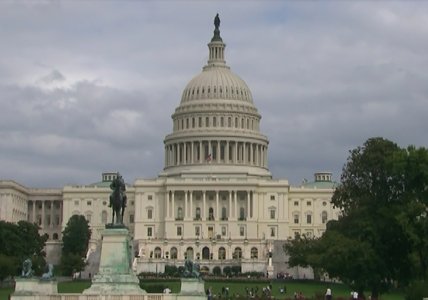
Full Episode: April 8, 2011
With a $39 billion spending cut agreed upon, the possibility of a government shutdown is finally over. The panel discusses why leaders of neither side wanted a shutdown in the first place, and how their constituents may feel. Joining Gwen Ifill: John Dickerson, Slate Magazine/CBS News; Michael Duffy, TIME Magazine; and Jeanne Cummings, Politico.

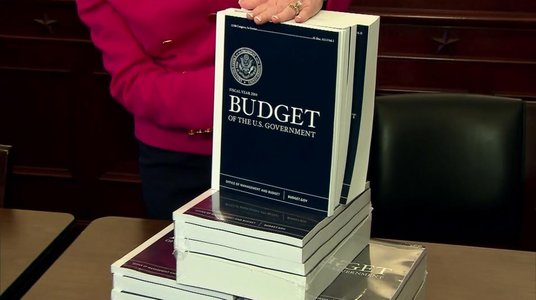
Full Episode: April 15, 2011
While President Obama and Rep. Paul Ryan both unveiled plans to cut $4 trillion from the national debt they continue to argue over how to do it. The GOP and Democrats continued to fight over America's deficit, from taxes to overhauling Medicare and Medicaid. This week: Susan Davis, National Journal; Jeff Zeleny, New York Times; Janet Hook, Wall Street Journal; John Harwood, CNBC/NY Times.

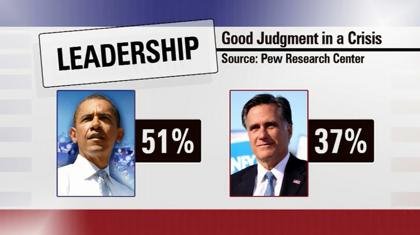
Full Episode: April 22, 2011
With gas prices on the rise, an S&P report lowering America's credit outlook, continuing debate over the deficit and a stalemate in Libya, President Obama's approval numbers have declined just at the moment he launched his reelection campaign. Joining Gwen tonight: David Wessel/Wall Street Journal; Coral Davenport/National Journal; Dan Balz/Washington Post and Martha Raddatz/ABC News.


Full Episode: May 6, 2011
After U.S. forces kill Osama bin Laden, America rejoices but the war on terror continues. The panel looks at the intelligence that led to bin Laden, the political and national security impact, and the strained US-Pakistan relationship. Joining guest host, Gloria Borger: James Kitfield, National Journal, Tom Gjelten, NPR, Peter Baker, New York Times, and Charles Babington, AP.


Full Episode: May 13, 2011
The impact of Osama bin Laden's death continues to ripple, straining the U.S.'s relationship with Pakistan. After a bump in the polls, Obama returns to domestic policy while the GOP presidential field adds a few more candidates. Joining Gwen: David Sanger, New York Times; Nancy Youssef, McClatchy Newspapers; John Dickerson, Slate/CBS News; Dan Balz, Washington Post.

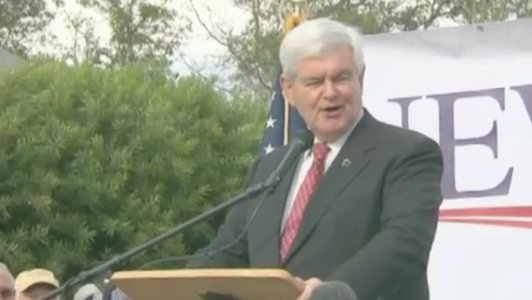
Full Episode: June 10, 2011
As his top staff resigns, Newt Gingrich's presidential ambitions seem to falter while Democrats distance themselves from Rep. Anthony Weiner after he confessed to sexually explicit online activity. Also, a report on the future of Afghanistan as U.S. troops get set to withdraw. Joining Gwen: James Kitfield, National Journal; John Dickerson, Slate/CBS News; and Karen Tumulty, Washington Post.


Full Episode: June 17, 2011
Analysis of the 2nd GOP Presidential debate, and a new fact check feature 'Just the Facts.' Plus, details of VP Biden's negotiations on raising the debt ceiling. Also, the Pentagon and Defense Dept post-Robert Gates & controversy over the US involvement in Libya. Joining Gwen: Michael Duffy, Time; Nancy Youssef, McClatchy Newspapers; Dan Balz, Washington Post; and Jim Barnes, National Journal.


Full Episode: June 24, 2011
President Obama's announcement to begin drawing down U.S. troops from Afghanistan and what it means; the impact on class action suits because of the Supreme Court's Wal-Mart decision; and the latest on the growing GOP presidential field. Joining Gwen: Martha Raddatz, ABC News; Doyle McManus, Los Angeles Times; Nia-Malika Henderson, Washington Post; and Pete Williams, NBC News.

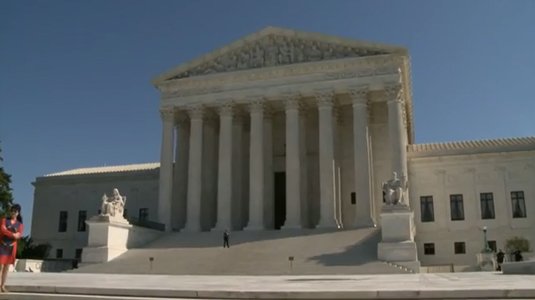
Full Episode: July 1, 2011
What will the global economic implications be if Congress does not raise the nation's $14.3 trillion debt limit? Also, Bachmann launched her presidential campaign. Plus, SCOTUS' ruling on the sale of violent video games to children. Joining Pete Williams: David Wessel of The Wall Street Journal; Major Garrett of National Journal; Jeff Zeleny of The New York Times; and Joan Biskupic of USA Today

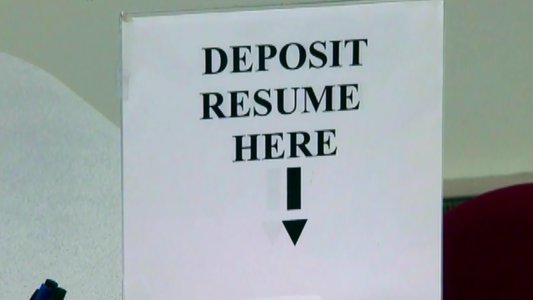
Full Episode: July 8, 2011
Discouraging June unemployment numbers help to frame the contentious debt ceiling negotiations. A look at GOP presidential hopefuls and their fundraising, and the White House changes course on acknowledging suicides in the military.


Full Episode: July 15, 2011
President Obama predicts economic "Armageddon" if the debt ceiling isn't raised by the Aug 2 deadline. Democrats want tax hikes. Republicans want spending cuts. Gwen Ifill drills down on the facts & fiction surrounding the budget crisis with Michael Duffy, TIME Magazine; Gloria Borger, CNN; John Dickerson, Slate Magazine/CBS News; David Wessel, The Wall Street Journal.


Full Episode: July 29, 2011
Lawmakers prepare to work through the weekend to reach a debt deal and avoid a U.S. default. What will it take to break the stalemate and how would a default impact Americans? Plus, how Obama, Boehner, and Reid have played it so far. Joining Gwen Ifill: Major Garrett, National Journal; Jeanne Cummings, Bloomberg News; David Wessel, The Wall Street Journal; and Karen Tumulty, The Washington Post.


Full Episode: August 5, 2011
The economy is the worst it's been in years. Why and how did we get to this point? Also, with all the infighting in Washington these past 3-months, how did the debt deal come together and how will it effect the 2012 elections? Also, voter confidence and its impact on the polls. With Michael Duffy, Time; Deborah Solomon, The Wall Street Journal; and Charles Babington, Associated Press.


Full Episode: August 12, 2011
Gwen Ifill reports from Iowa on the 2nd Republican primary debate and the Ames Straw Poll. Joined by Dan Balz, The Washington Post, they look at the testy exchanges on the debate stage. Plus, in the Washington Week studio, Judy Woodruff examines the White House's response to recent troublesome economic news with John Harwood of CNBC/The New York Times and Jackie Calmes, The New York Times.

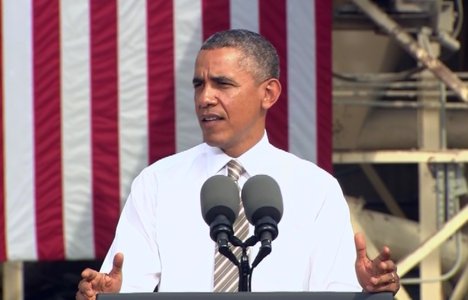
Full Episode: September 16, 2011
President Obama took his jobs plan straight to voters this week amidst a bounty of bad news including a jump in unemployment benefit applications, and a spike in the number of people living in poverty. And analysis of the Tea Party debate. Joining Gwen Ifill: John Dickerson of Slate/CBS News, Beth Reinhard of National Journal, Charles Babington of AP, Michael Fletcher of The Washington Post.

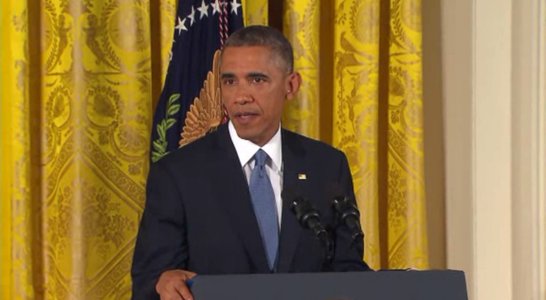
Full Episode: September 23, 2011
President Obama unveils his deficit reduction plan, with new taxes and spending cuts. Plus, Congress argues over disaster relief and a possible government shutdown. Also, Palestinians appeal for full membership at the UN. And the GOP presidential candidates debate.

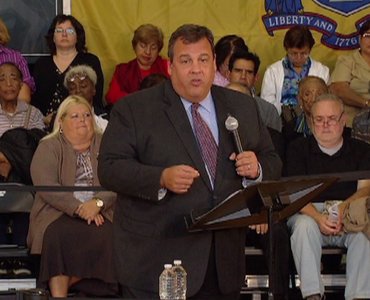
Full Episode: September 30, 2011
Airstrikes killed Anwar al-Awlaki, a U.S.-born Al-Qaeda leader in Yemen. At home, dissatisfied GOP voters want Gov. Chris Christie to join the presidential race. Also, President Obama feuds with his base. Plus, a stopgap bill temporarily prevents a government shutdown. Joining Gwen: John Dickerson, Slate/CBS News; Sam Youngman, The Hill; Major Garrett, National Journal; Pierre Thomas, ABC News.

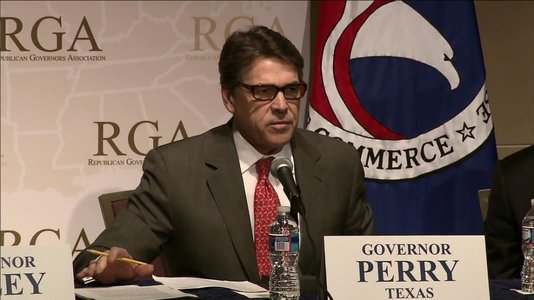
Full Episode: October 14, 2011
As the GOP candidates debate economics, President Obama promotes his jobs plan. But with its defeat in the Senate, what's next? Also, the strange story of an assassination plot against a Saudi Ambassador involving Iran and a Mexican drug cartel. Joining Gwen: Karen Tumulty, Washington Post; Michael Duffy, TIME; Alexis Simendinger, RealClearPolitics; James Kitfield, National Journal.

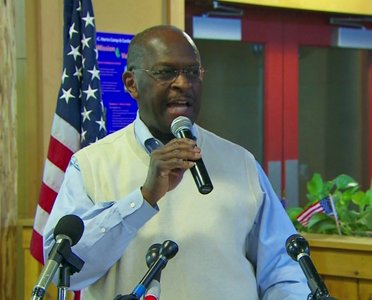
Full Episode: October 28, 2011
A long shot a short time ago, Herman Cain is shaking up the GOP race. But rising polls numbers brings greater scrutiny. And what happened to Rick Perry's surge? Also, the President tries to bypass Congress. Plus the clock is ticking on the Deficit Reduction Committee. Joining Gwen: John Dickerson, Slate/CBS News; John Harwood, CNBC/NY Times; Jackie Calmes, NY Times; Janet Hook, Wall St. Journal.


Full Episode: November 4, 2011
Alleged harassment scandals continue to dog Republican presidential frontrunner Herman Cain, as the other GOP candidates consider how to handle the controversy. Plus a discussion on the global economy, Greece, the G20 meetings, and new U.S. job numbers. Joining Gwen: John Harris, Politico; Chuck Babington, Associated Press; Alexis Simendinger, RealClearPolitics; Jim Tankersley, National Journal.

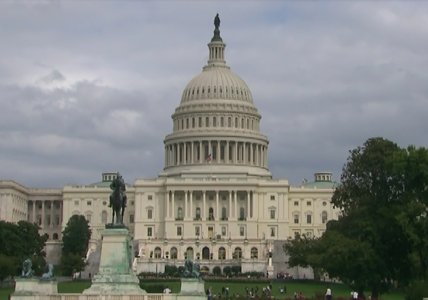
Full Episode: November 18, 2011
As the GOP candidates debated foreign policy, President Obama met with Asia-Pacific leaders. Newt Gingrich's bumpy climb in the polls. And, what happens if the Super Committee fails to deliver? Plus, SCOTUS to decide constitutionality of health reform. Joining Gwen: Major Garrett, National Journal; Jeanne Cummings, Bloomberg News; Lori Montgomery, The Washington Post; Joan Biskupic, USA TODAY.


Full Episode: December 23, 2011
This week, we look back at 2011 and forward to 2012. We'll analyze battles between Congress and the President, the economy, the killing of Osama bin Laden, the pullout of US troops in Iraq while fighting continues in Afghanistan, and more. Joining Gwen: Helene Cooper, New York Times; Michael Duffy, Time Magazine; Doyle McManus, Los Angeles Times; David Wessel, Wall Street Journal.


Full Episode: December 30, 2011
Four days before the Iowa Caucuses, Mitt Romney and Ron Paul lead, but Rick Santorum may surprise come voting day. Plus, how will Congressional retirements affect Democrats' efforts to retain control of the Senate in 2012? Joining Gwen from Iowa: Karen Tumulty, The Washington Post; Jeff Zeleny, The New York Times. Around the table: Christina Bellatoni, CQ Roll Call; Susan Davis, USA Today.

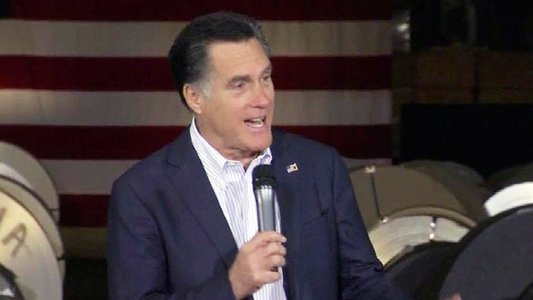
Full Episode: Januuary 6, 2012
This week, we're on the ground in Manchester, New Hampshire to preview the primaries. After a close finish in Iowa, will Mitt Romney stay ahead of the pack in the Granite State? Joining Gwen: Dan Balz, Washington Post; John Dickerson, Slate Magazine and CBS News; Julianna Goldman, Bloomberg News; John Harwood, CNBC and The New York Times.


Full Episode: January 13, 2012
Will Mitt Romney's momentum from successive wins in Iowa and New Hampshire help him win South Carolina? Plus, the Supreme Court will decide on the FCC's authority to regulate the airwaves, and President Obama's aims to shrink government. Joining Gwen: Beth Reinhard, National Journal; Jeanne Cummings, Bloomberg News; Alexis Simendinger, RealClearPolitics.com; Pete Williams, NBC News.

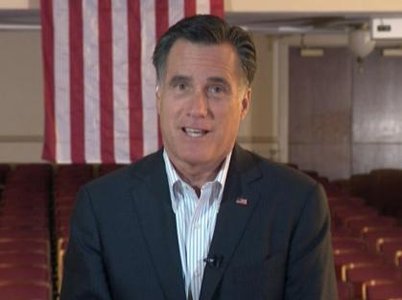
Full Episode: January 27, 2012
Ahead of next week's Florida Republican primary, the 4 remaining candidates squared off on the ground and in two debates. Plus, following his State of the Union Address, President Obama hit the road to push his economic and jobs plan. Joining Gwen: Dan Balz, The Washington Post; John Dickerson, Slate Magazine & CBS News; Jackie Calmes, The New York Times; David Wessel, The Wall Street Journal.


Full Episode: February 3, 2012
What do January's unemployment numbers tell us about the economy? Plus, Mitt Romney won the Florida primary, but his comments about the poor are making headlines. Also, new FEC disclosures shine light on Super PAC money. Joining Gwen: Karen Tumulty, Washington Post; John Harwood, CNBC and New York Times; Doyle McManus, Los Angeles Times; Jim Tankersley, National Journal.


Full Episode: February 17, 2012
As the GOP presidential primary race between Rick Santorum and Mitt Romney tightens, the panel previews the Arizona and Michigan primaries. Plus, President Barack Obama's proposed budget, a deal to extend payroll tax cuts, and tensions over Iran's nuclear program. Joining Gwen: Karen Tumulty, Washington Post; Jackie Calmes, New York Times; Susan Davis, USA Today; Martha Raddatz, ABC News.

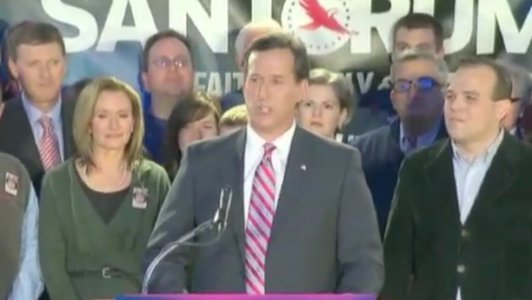
Full Episode: February 24, 2012
Rick Santorum is the main target in the GOP race as 13 states prepare to vote between now and Super Tuesday. Plus, international leaders meet in Tunisia to prevent more bloodshed in Syria. And unrest continues in Afghanistan after the burning of Qurans. Joining Gwen: Michael Duffy, TIME Magazine; Jeanne Cummings, Bloomberg News; Nancy Youssef, McClatchy; Yochi Dreazen, National Journal.

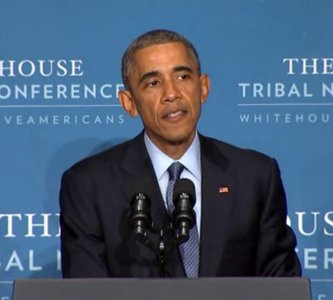
Full Episode: March 2, 2012
As we head into Super Tuesday, which GOP candidate has momentum and how will Tuesday's primaries change the race? Meanwhile, President Obama makes campaign-like speeches in Michigan and New York. Also, Senator Olympia Snow resigns, saying there is no longer bipartisanship in Congress. Joining Gwen: John Dickerson, Slate/CBS News; Gloria Borger, CNN; Charles Babington, Associated Press.


Full Episode: March 30, 2012
The Supreme Court heard three days of arguments on the 2010 Affordable Care Act. What were the key issues before the court? Plus, a mic catches a private comment between President Obama and Russian President Medvedev. Also, Mitt Romney's latest endorsements and the GOP race. Joining Gwen: Joan Biskupic, Reuters; Pete Williams, NBC News; Jeff Zeleny, New York Times; Julianna Goldman, Bloomberg News

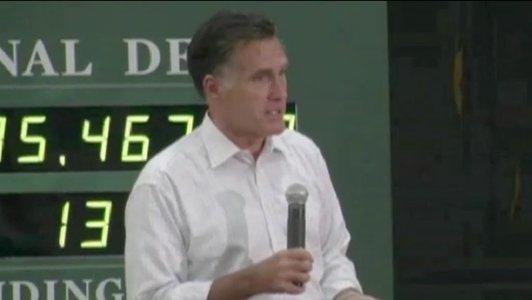
Full Episode: April 6, 2012
After three big wins Mitt Romney has scored more than half of the delegates needed for the GOP presidential nomination. Plus, new unemployment numbers shed light on the economy. Also, female voters, the President's Supreme Court remarks and more. Joining Gwen: John Dickerson, Slate Magazine/CBS News; Karen Tumulty, Washington Post; Jackie Calmes, New York Times; David Wessel, Wall Street Journal.

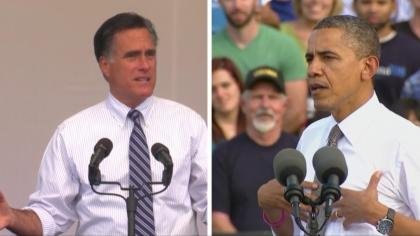
Full Episode: April 27, 2012
As the campaigns look ahead, Mitt Romney targets Barack Obama, but he is targeting youth voters. The Supreme Court hears arguments on Arizona immigration law. Also, a year after Osama bin Laden's death, balancing terrorism and civil liberties. Joining Gwen: John Dickerson, Slate Magazine/CBS News; Alexis Simendinger, RealClearPolitics; Pete Williams, NBC News; James Kitfield, National Journal.

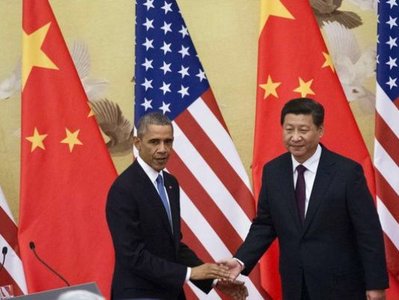
Full Episode: May 4, 2012
The U.S. and China continue to negotiate over activist Chen Guangcheng's travel to America. Plus, President Obama visited Afghanistan on the one year anniversary of Osama bin Laden's death. Also, new unemployment numbers and the 2012 presidential race. Joining Gwen: Martha Raddatz, ABC News; Peter Baker, New York Times; David Wessel, Wall Street Journal; Charles Babington, Associated Press.


Full Episode: May 11, 2012
What's the political fallout of President Obama's support for same-sex marriage? Plus, longtime Senator Richard Lugar, R-Ind., lost his party's primary. What does that mean for moderate republicans and incumbents? Also, the double-agent al-Qaeda plotter. Joining Gwen: Major Garrett, National Journal; John Dickerson, Slate Magazine & CBS News; Susan Davis, USA Today; Pierre Thomas, ABC News.


Full Episode: June 1, 2012
What do disappointing job numbers mean for the already unemployed and the state of economic recovery? Mitt Romney wins enough delegates to make him the unofficial Republican nominee and finds himself in a dead heat with President Obama in three key swing states. Plus the latest on the crisis in Syria.

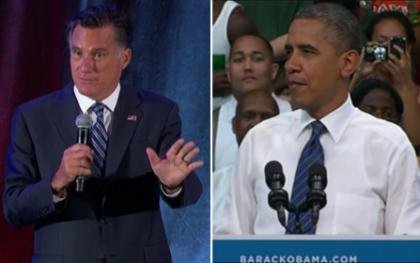
Full Episode: June 22, 2012
Mitt Romney and President Obama court Latino voters as immigration politics enters the spotlight. Plus, Obama invokes executive privilege as Attorney General Eric Holder faces a contempt of Congress charge. Also, what’s Europe’s economic future? This Week: Jeff Zeleny, New York Times; Laura Meckler, Wall Street Journal; Major Garrett, National Journal; Doyle McManus, Los Angeles Times.

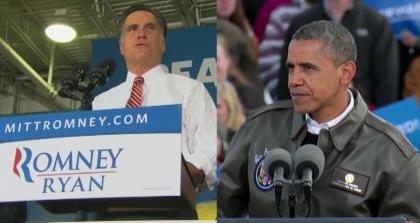
Full Episode: July 6, 2012
President Barack Obama campaigns in Ohio and Pennsylvania and accuses Romney of outsourcing jobs during his time at Bain Capital. Meanwhile, Mitt Romney says that the federal health care mandate is indeed a tax. Plus, new unemployment numbers. Joining Gwen: Dan Balz, The Washington Post; Jan Crawford, CBS News; Charles Babington, Associated Press; Amy Walter, ABC News.

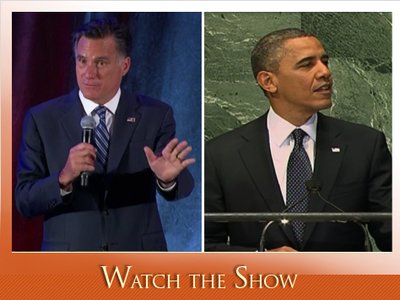
Full Episode: July 13, 2012
This Week, President Barack Obama and Mitt Romney both campaigned in battleground states. Obama called for an extension of middle class tax cuts while Romney addressed the NAACP. Also, House Republicans voted to repeal the president's health care law. Joining Gwen: Michael Duffy, TIME Magazine; Lori Montgomery, The Washington Post; Alexis Simendinger, RealClearPolitics; Sam Youngman, Reuters.


Full Episode: July 20, 2012
A horrific mass shooting at a movie theatre near Denver, Colorado. The campaigns talk about tax history and economic policy as attack ads from both campaigns intensify. And the fighting in Syria spreads to Damascus as the rebels achieve new victories. Joining Gwen: Pierre Thomas, ABC News; Karen Tumulty, The Washington Post; Jeff Zeleny, The New York Times; Doyle McManus, Los Angeles Times.

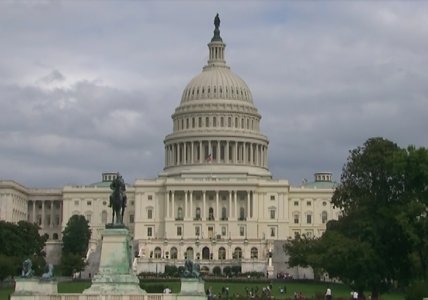
Full Episode: August 3, 2012
Mitt Romney and President Obama rally undecided voters in battleground states. The Tea Party scores a big victory in Texas with Senate nominee Ted Cruz. Plus July jobs numbers and Congress starts its summer recess with key legislation left undone. Joining Gwen: Amy Walter, ABC News; Karen Tumulty, The Washington Post; David Wessel, The Wall Street Journal; Susan Davis, USA Today.


Full Episode: August 10, 2012
New polls show that the presidential race is as close as ever. Mitt Romney and President Barack Obama campaign in key swing states as the campaigns and super PACs release more controversial advertisements. Also, when will Romney pick his running mate? Joining Gwen: Jeff Zeleny, The New York Times; Beth Reinhard, National Journal; John Harwood, CNBC and The New York Times.


Full Episode: August 17, 2012
Mitt Romney’s campaign received a jolt after announcing his running mate, Rep. Paul Ryan. Both campaigns came out swinging with new attacks ranging from policy to personal. Will Paul Ryan’s addition to the campaign change the direction of election? Joining Gwen: Jackie Calmes, The New York Times; Alexis Simendinger, RealClearPolitics; John Harris, POLITICO.


Full Episode: August 24, 2012
A Special Washington Week from St. Petersburg, Florida ahead of the Republican National Convention. How did the Mitt Romney campaign attempt to remain on-topic amidst the Todd Akin debacle? Why are the candidates sparring over Medicare again? Joining Gwen: Dan Balz, Washington Post; Beth Reinhard, National Journal; John Dickerson, Slate and CBS News; Amy Walter of ABC News.


Full Episode: August 31, 2012
Special Washington Week from Charlotte, North Carolina: Did Mitt Romney fulfill expectations at Republican National Convention? Plus what affect did Clint Eastwood's unscripted speech have? Also, we preview the Democratic National Convention. Joining Gwen: Jeff Zeleny, New York Times; Karen Tumulty, Washington Post; Alexis Simendinger, Real Clear Politics; John Hardwood of CNBC / New York Times.

© 1996 - 2026 WETA. All Rights Reserved.
PBS is a 501(c)(3) not-for-profit organization
